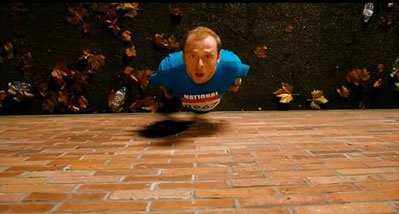The midyear slump can be a killer; when faced with “the wall” remember to take it down the same way you put it up, brick by brick.
Last week was my favorite week in the school year, mid year exam week. I’m going to be selfish for a moment here; it’s my favorite week not because I get to see how one test exemplifies the lessons and imparted knowledge of my teaching this past semester, but rather, it’s my favorite because it’s a lull before the new semester. A time to reflect and plan for what’s to come (and we get more than 18 minutes for lunch). We secondary teachers get an opportunity to furiously grade,and plan but in a much more relaxed and quiet atmosphere.
This year wasn’t the same, because the levity that I usually associate with the week was limited by the other projects I have taken on this year. When I stopped to take a breather, I realized I had hit the Wall.

I’ve hit the Wall plenty of times in the past. Usually it’s in March where everybody seems to be high strung with the “I’m so sick of winter” blues, April seems like ages away, and then you realize you’ve got to start taking your son to baseball practice, when it’s cold.
This Wall was different.
The difference was that I had created it. Each brick was another project, or task, or responsibility that I willingly accepted. The mortar that held all of these bricks together was the effort, or lack thereof, I had put into each project. The ominous National Board candidacy process I began, the January term grad class (which I should have put more effort into), attempting to get back in shape, the resolution to make more family time, a second “remote” contract job, facilitating professional learning for my union, more stringent feedback guidelines for my students, are all “bricks” of my own creation. I dug the mud, I shaped the brick, I fired the kiln and I mortared them together. It was a beautiful wall, but it was too big to be purposeful and thus became the Wall.
Walls can be debilitating. Instead of finding solutions, the gut reaction is to curl up in a ball at the base and wait for someone to come by and help; perhaps they help you climb over it, or cut a door in it, or simply knock it down. My wall was different. I liked my bricks, I didn’t want to move past, or cut them out, or knock them down. I wanted to save them, rebuild them, maybe make a beautiful arch, become a mason of my projects so to speak.
Sounds good, right?
Now that we’re a week into the second semester, I’ve got a little rhythm going. What I’ve managed to do is scrape out some of that mortar holding my Wall together. Each brick is still in perfect condition, but I’ve placed some off to the side. My wall is about half the size it once was. I can see past it. More importantly I have these wonderful bricks that I plan on using as I draw up some new plans.
There’s a good chance that someone or something can come by and throw up a whole new row of bricks in the next few months, baseball season will be here before you know it. If that happens, I’ll just have to see if my plan works for not just my wall, but for others as well.

